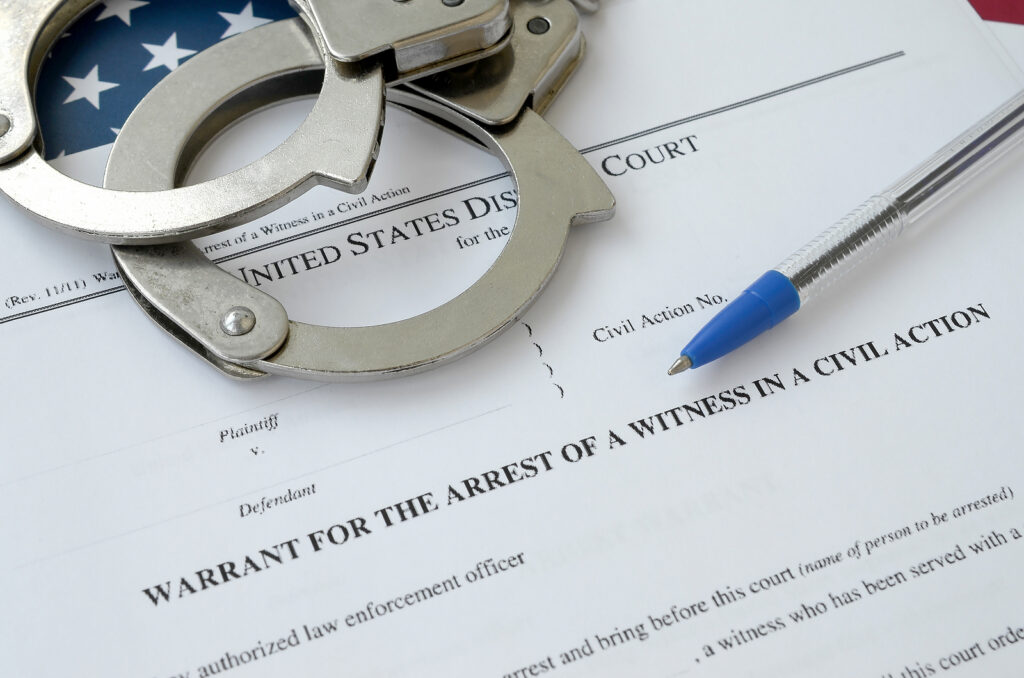Fleeing a crime scene, often a knee-jerk reaction fueled by fear and panic, can have serious legal repercussions. In Indiana, as with many states, leaving a crime scene not only escalates the situation but also leads to the possibility of additional criminal charges, further complicating the legal proceedings.
This blog seeks to shed light on what happens when one becomes a fugitive in Indiana, the implications of having an arrest warrant, and the potential legal consequences one may face. Our aim is to equip readers with the knowledge needed to make informed decisions when confronted with such challenging circumstances.

Becoming a Fugitive in Indiana
According to the Indiana Code 35-41-4-2, a person becomes a fugitive when they flee or attempt to flee from their home state with the intent of evading arrest or prosecution for a crime committed within that state. This means that if someone flees Indiana in an attempt to avoid facing criminal charges, they are considered a fugitive under the law.
Consequences of Being a Fugitive
Being a fugitive in Indiana comes with severe consequences. Firstly, it may result in an additional felony charge for fleeing. This can lead to increased penalties and potential imprisonment on top of the original charges that prompted the escape. Additionally, the bail amount set by the court can be significantly higher as the defendant is seen as a flight risk. This means that even if the person is arrested and brought back to Indiana, they may have a more challenging time securing their release from jail until their trial date.
Having an Arrest Warrant
In Indiana, when someone flees a crime scene, they are considered to have violated their bail or probation, and therefore have an arrest warrant issued for their apprehension. An arrest warrant empowers law enforcement to detain the suspect as soon as they are found. This could happen even if the person is not in Indiana at the time of the warrant’s issue. As long as they return to or are located within Indiana at any point, they may be arrested and brought before a court of law.
Legal Consequences
Fleeing a crime scene in Indiana does not automatically mean the person is guilty of the original charges they were trying to escape. However, it can make their case more complicated and challenging to defend. Fugitives may face additional charges for fleeing, as well as increased penalties if found guilty of the original crime. Moreover, failing to report for a scheduled court hearing can result in a bench warrant, which authorizes law enforcement to arrest the person and bring them before the court. This can lead to further legal consequences, including potential jail time or hefty fines.
Always Hire a Criminal Defense Lawyer
Being a fugitive in Indiana can have severe legal consequences. That is why it is essential to always hire an experienced criminal defense lawyer to help navigate the complex judicial system and protect your rights. A skilled attorney can advise on the best course of action, whether it’s turning yourself in or challenging the arrest warrant. They can also negotiate on your behalf to potentially reduce charges and minimize penalties.
Conclusion
In summary, fleeing a crime scene in Indiana has severe legal implications that can significantly impact one’s life. It is always best to face the consequences of one’s actions and cooperate with law enforcement rather than risk becoming a fugitive. If you or someone you know is facing criminal charges, it is crucial to seek legal counsel promptly and follow the proper procedures to avoid any further complications. Remember, running away from the problem will only make it worse in the long run.
Do you suspect that you are wanted by the police for fleeing a crime scene? Contact Attorney David E. Lewis at 317-636-7514 to speak with a seasoned criminal defense lawyer in Indianapolis, Indiana. Our law firm will get you the best possible outcome to your criminal case!
Related Posts:
Frequently Asked Questions About Warrants
What Happens if I Do Not Show Up For My Court Date?
The Legal Consequences of Keying Up Someone’s Car





